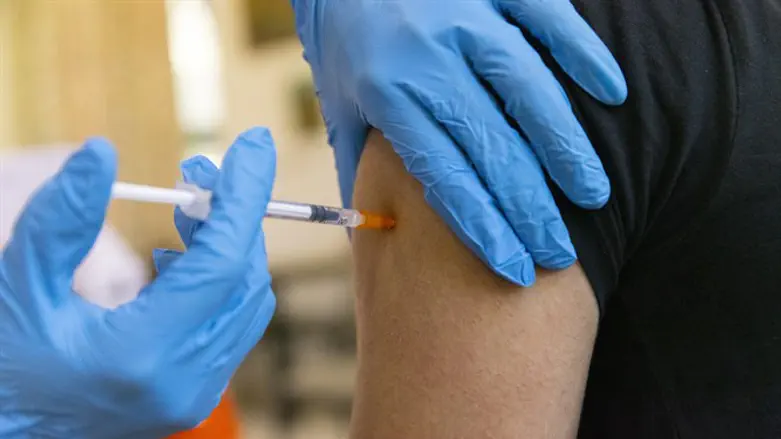
A senior Israeli health official expressed hope Sunday night that the third dose of the Pfizer-BioNTech coronavirus vaccine will have a longer lasting impact than the first two doses, while admitting that there is no evidence that will be the case.
Speaking with Channel 13 Sunday, Sharon Alroy-Preis, the head of the Health Ministry’s public health services department, said that the Ministry has found that the immunity against COVID provided by the Pfizer vaccine wanes after five months, adding that it remains unclear how longer the booster shot will extend protection for.
Nevertheless, Alroy-Preis pointed to examples of other vaccines which demonstrate significantly stronger and more lasting protection after the third booster shot.
“We understand now that the vaccination protocol for coronavirus vaccines is such that after five months, there is a decline in protection.”
“But it is a bit difficult to tell how long the third vaccine will last. With many other vaccines, like with hepatitis, for example, there are two shots one after the other, then a booster shot. We’re following this, and there is a good chance that the booster shot will provide much longer-lasting protection, and not just half a year.”
Alroy-Preis added that following the Ministry’s decision Sunday to offer booster shots to all vaccinated Israelis over the age of 12, health officials will closely track side-effects from the vaccine.
Now that we’ve vaccinated more than two million people [with the third dose] and we know that there isn’t anything unusual, the number of side-effects being reported remains smaller than with the second dose. But we’ll track every unusual side-effect among the young people getting vaccinated.”
Alroy-Preis denied that the Ministry’s move to shorten the validity of ‘green passes’, effectively requiring a third dose to maintain their validity, was intended to pressure Israelis to get the booster shot.
“We are not making a stick-and-carrot situation to make people get vaccinated. We’re trying to create a green pass system with the lowest possible risk of infection, and if I know that the vaccine no longer protects a person after half a year from his vaccination, it isn’t logical for him to be able to enter an event with 5,000 people using a green pass and potentially infect them.”

